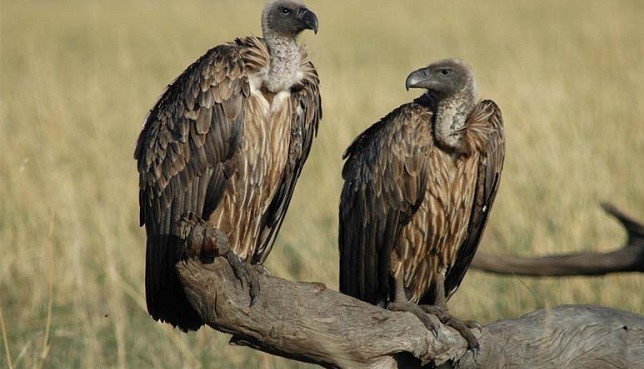The advent and rise in zoonotic diseases such as Ebola, Monkey-pox and Avian influenza and now the novel Coronavieus has inspired scientists to probe into causes of these preventable outbreaks. Not only the outbreaks but specifically in the spread, mortalities recorded and coping mechanisms while finding solutions.

Though it appears unclear, recent scientific researches are linking the decline of vultures with increasing zoonosis cases which is now of growing global concern. Thus, a need to re-evaluate the relevance of this unique species and their impact.
Vultures are scavenging birds of prey consisting of two types: the New and Old World Vultures. These birds specialise in feeding on carrions or dead animals, preventing the smell which pollutes and stench our environment attracting flies and breeding diseases. It also possesses a highly acidic stomach which kills nearly all bacteria or viruses that may be present in the dead animal; this way, they help prevent the spread of diseases.
Unlike many other birds, vultures are unique, being present in both temperate and tropical regions. The Old World Vultures are found in Africa, Europe and Asia while the New World Vultures are found in America’s warm and temperate areas.
There are about 23 known species of vultures and 16 of them are Old World Vultures. Sadly, six of Africa’s 11 species are threatened with extinction with most earmarked as endangered in the International Union for the Conservation of Nature (IUCN) Red List of Threatened Species.
According to Dr. Julius Arinaitwe, BirdLife International’s Africa Programme Director: “The main causes of the drop in African vultures are thought to be indiscriminate poisonings where the birds are drawn to poisoned baits, the use of vulture body parts in traditional medicine, and deliberate targeting by poachers are robbing the African skies of one of their most iconic and a spectacular group of birds. The rapid decline of the continent’s vultures has the profound consequence for its people — as vultures help stop the spread of diseases by cleaning up rotting carcasses.”
With reference to reports, the increasing interest in vulture body parts in the past three decades has led to the decline of seven key vultures species by about 80%. These declines are largely on the demand for vulture heads which makes up condiments and entrails for preparing charms and fetish traditional medicines.
This trade is largely experienced in West African countries with some countries in Southern Africa taking the lead in kills en route to the Western parts of Nigeria where the demand is highest. This ugly trend has estimated about 6,000 trades in birds across West Africa every year, according to observations from Ralph Buij, a member in the research team from Wageningen University in the Netherlands.
What then do we benefit from conserving vultures and nature as humans?
Remarkably, vulture decline could have more than ecological effects, as they prevent disease propagation from dead animals to humans. Vultures also have less contact with humans, unlike other facultative scavengers like dogs and rodents. They have a slow reproduction rate attaining sexual maturity at about five to seven years of age and averagely producing one chick every two years.
Presently, the United States of America has spent about $500 billion to tackle the effects of Coronavirus. In 2014, Nigeria spent about N1.9 billion, an equivalent of $5.3 million, to curtail the outbreak of Ebola Virus Disease (EVD), an acute zoonotic disease.
It is safe to posit there are some unseen challenges and battles vultures won which were never known to or appreciated by human before their swift decline.
In April 2014, at the wake of Ebola, Nigeria like other developing nations on the African continent spent millions of dollars and depended largely on aids to deal with and eventually eradicate the deadly virus. Not without a blow on people and the economy, however, with recent cases reported in some part of Africa, calls for concern to prevent future occurrence. Coronavirus is replicating same, albeit with much whirlwind effect and on a global scale.
Most medical discoveries and recent breakthroughs were made possible because of the presence of animals. Some of them are majorly adopted from the lifestyle of animals then improved for the benefit of humans as observed in equipment and machines we use. We are connected with nature – of course, animals inclusive.
With over 500,000 deaths and over 13 million confirmed cases of infected persons, closure of countries’ borders, fall of economies and trade, skyrocketing unemployment, grounded industries; COVID-19 has shown us that environmental responsibility is not solely a duty for government and international organisations. Individuals hold a vantage position in enhancing, maintaining and enforcing environmental laws.
Genesis 2 vs. 15 in the Bible reminds us to manage nature and keep it, and Exodus 15 vs. 25 shows us that nature serves solutions to human problems. It is time to make better decisions, discipline our taste, quench the quest for unsustainable developments and focus on the right types of actions. The action begins with you.
By Somtochukwu Azugo (Lagos-based environmentalist and a Birdlife Conservation Leaders Programme Fellow; somtochukwu.chilo@gmail.com)
